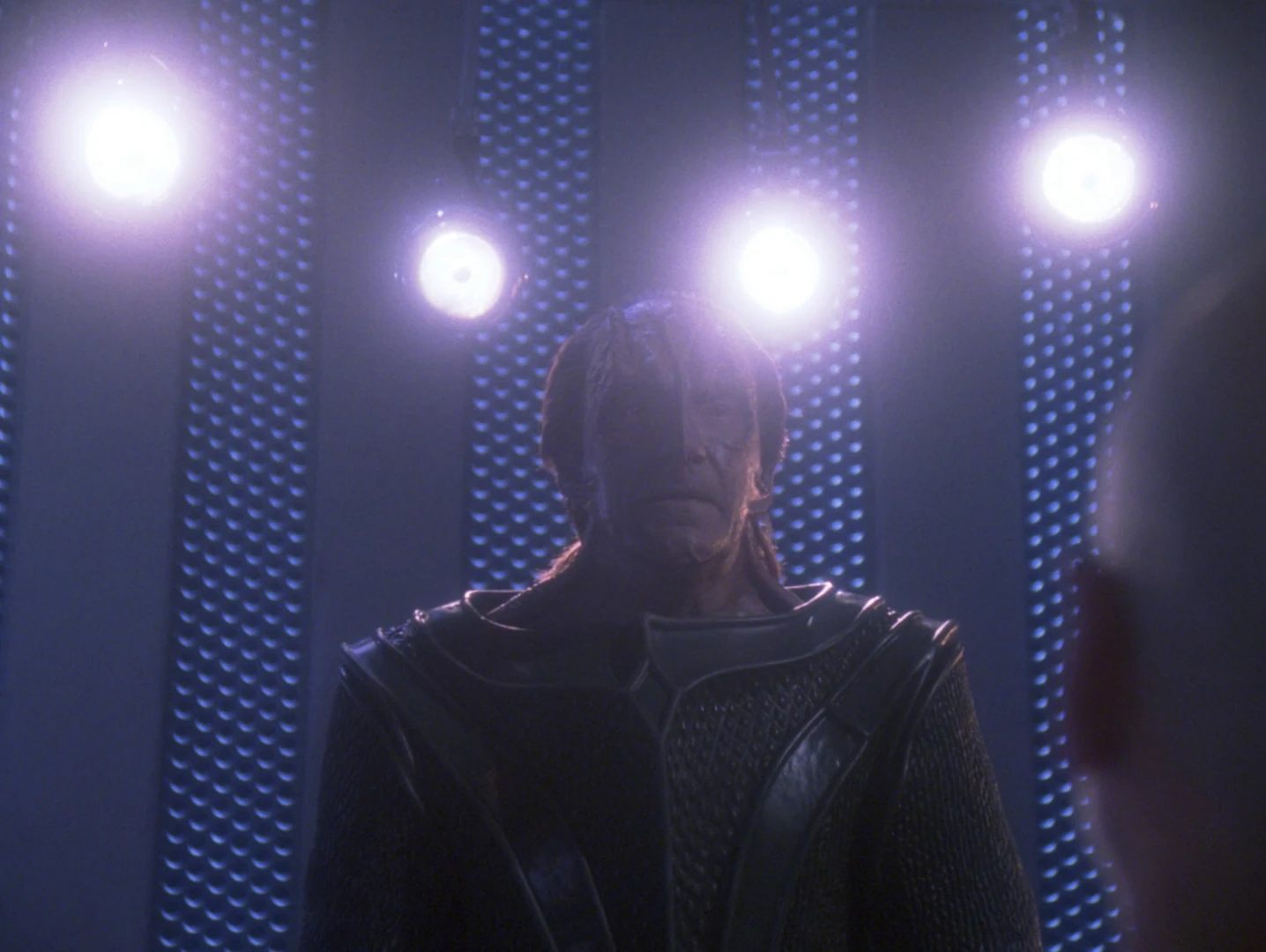For me S1 of TOS has always both stood out from what followed and been my favourite. And one aspect of that uniqueness are the references to Earth and UESPA etc. Now, I know that in RL it was just that the production team hadn't yet got the setting details tied-down, but I wonder what a sensible in-universe reason for all this might look like?
I think that United Earth is the political organisation and UESPA the space exploration and defence arm of that. There may be a few allied/incorporated/federated planets & sentient species, but Earth/Terra is the first among equals.
As a good example, Vulcan is one of these allies, but only truly allied in the last 10-15 or so years.The Axanar incident was a major turning point and seens to have involved some sort of conflict (extrapolated from Kirk's lines in " Whom gods destroy") followed by a peace mission (again WGD and Kirk having a Axanar peace medal in "Court martial". Again in CM Kirk mentions "the Vulcan(ian) Expedition". The way in which it is said sounds to me like a big thing and not just a collaboration with/visit to an ally of close and long association? Also there is the frequent prejudice against Spock, and the fact that McCoy doesn't seem to know Vulcan physiology and medicine. Again this doesn't feel like close allies? And don't get me started on "Amok Time" where a visit to Vulcan seems just as much mystery and social "exploration" as do the visits to unknown planets throughout TOS.
I know that this is a TOS only concersation and is heavilly into YMMV territory, and so I would love to read other takes on this?
"The Federation" was first used in Arena (one episode before TIY or two by production order):
United Earth anything was never mentioned again after TIY, so, this must have been during a short transitional phase of moving Starfleet Command from United Earth government over to the Federation (UFP) organization.
If one discounts Enterprise, you almost get the feeling of a transition being at play. Where the Federation feels it is better to have its resources under a central command with the reemergence of threats like the Romulans and Klingons.
There is a thread with the title "Each Season Seems like a Separate Show".
https://www.trekbbs.com/threads/each-season-feels-like-a-separate-show.305164/
In fact, there are greater and lesser differences between each of the six half seasons of TOS as well.
And to me the most noticeable difference seems to be between approximately the first half season of TOS and the second half season of TOS, although each later season of TOS seems to be a little more different from the first half season of TOS.
In my post number 73 at: https://www.trekbbs.com/threads/tos-chronology.304218/page-4
I discussed the differences between the first and the second parts of the first season of TOS and how the setting seemed to have changed significantly in a very short time.
And I suggested that maybe the transition happened over a somewhat longer time.span that the Enterprise crew didn't live through or experience, that they might have skipped over that time space due to some science fictional story event happening to them off screen which sent them into the future. And perhaps Starfleet Command and the Federation didn't allow them to return to the past if they have a method of time travel to the past, since that might risk their changing history. So they would be stuck in the new time period.
It would be really fun to come up with a theory that the Enterprise crew makes several such one way time jumps into the future during the five yer mission, so that some episodes of TOS happen in every single time period which has ever been claimed to be the era of TOS..
However, there is a lot of evidence to limit the length of any time jumps into the future that the Enterprise might have made during the course of TOS.
In Star Trek II:The Wrath of Khan Khan says:
KHAN: You are in a position to demand nothing, sir. I, on the other hand, am in a position to grant ...nothing. What you see is all that remains of the ship's company and crew of the Botany Bay, marooned here fifteen years ago by Captain James T. Kirk.
So any time jumps which Kirk and the Enterprise might have made between "Space Seed" and Star Trek II:The Wrath of Khan must total less than the total time Khan experienced between "Space Seed" and Star Trek II:The Wrath of Khan , which should be less than 16.0 years. Kirk also said it was 15 years since he last saw Khan.
In "Journey to Babel" Spock's joining Starfleet resulted in Spock and Sarek not speaking as father and son for 18 years. So "Journey to Babel" should be either 18 years after Spock entered Starfleet academy or 18 years after Spock graduated and was commissioned an ensign in Starfleet. "Journey to Babel" was probably some time after "The Menagerie".
"The Menagerie" was 13 years after the Talos IV incident, when Spock was apparently senior enough to be third in command of the Enterprise. If it took Spock 4 years to graduate, and he entered 18 years before "Journey to Babel". Spock should have graduated and become commissioned only one year or less before the Talos IV incident. If Spock graduated 18 years before "Journey to Babel", he should have been commissioned only five years or less before the Talos IV incident.
In "The Enterprise Incident" in the 3rd season:
COMMANDER: How long have you been a Starfleet officer, Spock?
SPOCK: Eighteen years.
If 18 years refers to the same event in Spock's life in both "Journey to Babel" and "The Enterprise Incident" the two episodes would happen less than one year apart. If "Journey to Babel" was 18 years after Spock entered Starfleet Academy and "The Enterprise Incident" was 18 years after Spock graduated and was commissioned, they might be as much as 4 years apart. But that would give Spock only 1 year of seniority at the most between being commissioned and being 3rd in command at Talos IV, unless the precocious Spock graduated from the Academy and was commissioned in only one year or something.
Or possibly Spock subtracted several years spent in some sort of time warp or something from the total time since he was commissioned when he said he had been a starfleet officer for 18 years.
In the 3rd season episode "The Day of the Dove", which perhaps helpfully has no stardate, Kang says:
KANG: For three years, the Federation and the Klingon Empire have been at peace. A treaty we have honoured to the letter.
This implies that "The Day of the Dove" is about 3 years after "Errand of Mercy", which should be no more than one or two more years than would be expected.
In the second season episode "Who Mourns for Adonais?":
KIRK: How old are you?
CHEKOV: Twenty two, sir.
Being 22 indicates that Ensign Chekov probably hasn't been on the Enterprise very long. But in Star Trek II:The Wrath of Khan Chekov and Khan apparently recognized each other from the first season episode "Space Seed", indicating that "Who Mourns for Adonais?" probably didn't happen more than a few months after "Space Seed".
Of course "Space seed" would be expected to be after the hypothetical time skip if that happened.
In the 2nd season episode "The Deadly Years" Kirk meets an old girffriend Dr. Janet Wallace:
KIRK: How long has it been?
WALLACE: Six years, four months, and an odd number of days. You mean you don't know?
KIRK: Well, it's been a long time. Things wouldn't change if it started all over again, would it? You have your job, I have my ship, and neither one of us will change.
WALLACE: You said it. I didn't. In all those years, I only heard from you once. A stargram when my husband died. You know, you never asked me why I got married after we called it off.
Those 6 years, 4 months and some days may have been since sometime before Kirk became captain of the Enterprise but was already married to his Starfleet career. Or they might possibly have been since sometime after Kirk already had the Enterprise, perhaps even sometime during the first seasons. But neither mentions Kirk being stuck in a time warp or something as an excuse for not contacting her more often.
In "This Side of Paradise" in the second part of the first season, on planet Omicron Ceti III:
ELIAS: You've known the Vulcanian?
LEILA: On Earth, six years ago.
ELIAS: Did you love him?
LEILA: If I did, it was important only to myself.
If Lelia met Spock on Earth sometime before the first season of TOS, any time skip between the first and second parts of the first season would have to have been less than six years long.
In "Court Martial" Kirk meets his former girlfriend Areel Shaw:
KIRK; It's been, how long has it been?
SHAW: Four years, seven months, and an odd number of days. Not that I'm counting.
If Kirk and Shaw last met sometime before the first season of TOS, any time skip between the first and second parts of the first season would have to have been less than 4 years and 7 months long.
Still, a time skip of one, two, or three years while the Enterprise was stuck in a time warp or something else science fictional would help to explain the changes between the first and second parts of the first season.
So maybe the Enterprise was transported a few years, and only a few years, into the future between the first and second parts of the first season, and was more or less stuck there, making the changes seem more abrupt than they would be if the viewers had seen the changes happening when they did.
See also post number 50 at:
https://www.trekbbs.com/threads/each-season-feels-like-a-separate-show.305164/page-3
For my latest compilation of all the data limiting the length of a phypotheticl tiem skip in the first season of TOS see posts numbers 160, 161, and 162
at: https://www.trekbbs.com/threads/tos-chronology.304218/page-8
Last edited:






